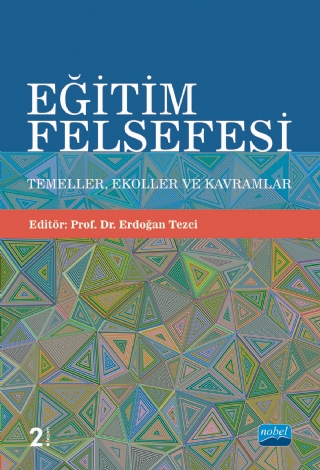Educational Philosophy \ 1-1

Looking at the development process of humanity from a historical perspective, it is seen that every social structure has some basic problems. Among these problems, how that society will continue to exist from the past to the future has emerged as a fundamental and vital problem. Every social structure first asks, “What kind of person do we want?” seeks an answer to the question. This answer determines the horizon lines of the border points that the future and development line of that society will reach. The philosophy of education is the name of the most basic intellectual activity that speculates about the border point that the future of a society will reach and discusses the nature of this border point and guides to construct a clear vision for the future. Philosophy of education, as a philosophical action, is at the center of all educational decisions. So much so that, while the philosophy of education guides the determination of high policies in the ministry of education as an abstract structure, in the classroom of a small village school it becomes flesh and bone with the curriculum, teaching methodology and teacher. The philosophy of education is right next to the teacher with all its majesty in all of the time a teacher spends at school and in every action related to education outside of school. However, teachers and school administrators do not have much time to spare for philosophical thought in a busy working day, which is often spent with the speed, bustle and hustle and bustle of daily life. However, every conversation about the students in the teachers' room, every decision taken in the principal's room, every idea put forward in the branch meetings shows that the education philosophy is alive in the school.
This is the main purpose of this book! This book aims to find an answer to the question of what the philosophy of education is, what kind of structure it consists of, and which schools are formed by differentiating the answers to the basic problems. It contributes to the development of a perspective in the reader as to why these schools emerged while meeting with many different traditions, from the most rooted schools of thought of the philosophy of education to the schools of thought we call modern. The main audience of this study, which is designed in a way that anyone who thinks about education can benefit, naturally consists of teachers and education faculty students. Texts on philosophy are often described as difficult. This is perhaps due to the rather complex nature of the topics covered. While discussing the subjects in this work, a plain expression was preferred as much as possible and the subjects were handled very clearly with the examples given. With this aspect, the work can be used as a basic text for the philosophy of education courses in the education faculties program, and can also be read as a basic introductory text for anyone interested in this field.
This is the main purpose of this book! This book aims to find an answer to the question of what the philosophy of education is, what kind of structure it consists of, and which schools are formed by differentiating the answers to the basic problems. It contributes to the development of a perspective in the reader as to why these schools emerged while meeting with many different traditions, from the most rooted schools of thought of the philosophy of education to the schools of thought we call modern. The main audience of this study, which is designed in a way that anyone who thinks about education can benefit, naturally consists of teachers and education faculty students. Texts on philosophy are often described as difficult. This is perhaps due to the rather complex nature of the topics covered. While discussing the subjects in this work, a plain expression was preferred as much as possible and the subjects were handled very clearly with the examples given. With this aspect, the work can be used as a basic text for the philosophy of education courses in the education faculties program, and can also be read as a basic introductory text for anyone interested in this field.